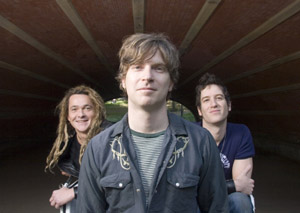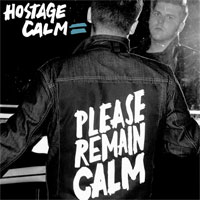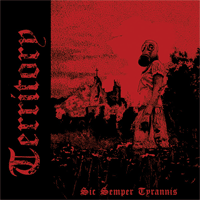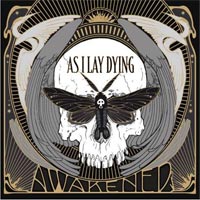NADA SURF
There has always been a communal aspect of music and at Pastepunk we don’t see why interviews should be any different. That is why we enlisted a writer, Mark Jourdian, and contributor, Virgil Dickerson [Suburban Home Records & Distribution] to team up and interview the band NADA SURF. Jourdian is a new fan, but Dickerson goes back a ways. We thought we’d let them explain how they came to love NADA SURF and then jump on into the interview. 
Jourdian: I had long ago deemed the NYC trio Nada Surf to be one hit wonders. Perhaps in my young age I didn’t notice the tongue in cheek irony of “Popular”, but it wasn’t catchy so I wasn’t feeling it. Fast forward almost ten years later and I’m sitting at my desk listening to KEXP (The best radio station ever). The song “Concrete Bed” kicks in and I was immediately floored, not just by how good it was, but by the fact that it was Nada Surf and that they were on the semi-buzzworthy label Barsuk. As luck would have it, “Concrete Bed” wasn’t the only good song on This Weight Is A Gift. Weight is an album that falls into the exclusive category of perfect album front to back. Whether it’s the upbeat jams like “Blankest Year” or the sullenly poignant “Always Love,” the album never lets up or disappoints. Needless to say Nada Surf had made a new fan.
Dickerson: From the moment Chris from The Gamits played me Let Go, I was hooked. I can easily say that I have listened to Let Go more than any other album in my music collection and continue to listen to it every chance I get. At an age where I stopped claiming to have a favorite band a long time ago, I found a new, favorite band. I was so excited to get their latest album, The Weight is a Gift, and although I had high expectations, the album met and surpassed any hopes I could have had for new material. When Jordan asked me to put together some questions for a Nada Surf interview, I really didn’t know where to begin. Nada Surf is a band that has overcome so much over the past 10 years. They went from being a one-hit wonder with their song, “Popular,” to being dropped by their major, and wondering what label would put out their material in the states. They had the task of escaping the shadow of their radio hit and redefining the way fans see them. Luckily for all of us, this band did not let these difficulties end their career before it really got going. I hope that if anything, this interview inspires some of you to listen to a few songs – you too might find a new, favorite band.
Pastepunk (MJ): Your current sound initially showed up on The Proximity Effect and has been a constant ever since. What was the catalyst for changing direction after 1996′s High/Low and why have you stayed the course?
Matthew Caws: That’s a good question but a difficult one to answer. I’m utterly obsessed with sound and feel and direction song to song, but not album to album. In the years leading up to High/Low, we still wanted to sound like so many other bands; Sonic Youth, Pixies, Luna, Sebadoh, Pavement, Rocket to Russia-era Ramones and so on. I can’t even think of who they were. All the bands I’ve loved, and there are hundreds, blur together whenever I try to think about them, as I’m doing now. Getting my first iPod last month and listening to songs in shuffle mode has certainly not helped. By the time we made The Proximity Effect, I didn’t want to sound like anyone anymore. Our little “Popular” speed bump had put us in a position where we had to prove (well, we didn’t have to, but it’s what it felt like at the time) that we were a “legitimate” band and not one that had been placed onto MTV by proceeds from a Busta Rhymes single or a Dream Theater box set. The other difference between High/Low and subsequent records is that it was recorded like a high-rent demo—we went in knowing exactly how the songs went and didn’t deviate. We cut the basic tracks, added a couple of guitars for thickness, a track or two of random fuzzed-out guitar doodling from which to pick and choose small accents, and I sang each song twice, leaving it up to the producer and engineer to choose what they preferred from the two takes. But the next time we came in only generally knowing what we were doing, which I greatly prefer. It’s one (very valid) thing to toy around with arrangements in the practice space, but it’s really exciting to do that in the studio, when a new idea can become hi-fi permanent reality in a matter of minutes. I think we’ve stayed the course by accident.
Pastepunk (MJ): This Weight Is A Gift runs the gamut from the insatiably catchy and upbeat (“Blankest Year”, “Concrete Bed”) to downright depressing (“What Is Your Secret”, “Your Legs Grow”). A lot of that has to do with the delivery of the vocals. Since vocals have such a dramatic effect, how do you approach them as you write a song?
Matthew Caws: I may come back to this question and try to drum up a flowery answer, but for now I’ll just say that I don’t think about vocal delivery. I just do what comes naturally and I leave it at that. If I do come back to this though, it will probably be because I’m feeling pressure from the length of the answer to the first question!
Pastepunk (MJ): Death Cab For Cutie’s rise in popularity has resulted in increased media/fan attention for all the Barsuk bands. Has that increased attention changed where you though Nada Surf would be today compared to the day that you signed to the Barsuk? Do you in any way view it as a “second chance”?
Matthew Caws: Death Cab were already very successful by any standard when we signed to Barsuk. I think it was clear to us that they were going to get bigger. But I don’t know if it has resulted in increased media/fan attention for all the Barsuk bands. If it has, I haven’t thought about it. What I liked about Death Cab’s success from the outset was that it was a kind of insurance that Barsuk would be financially stable and wasn’t going to go away any time soon.
Pastepunk (MJ): As a musician, what do you define as “success”?
Matthew Caws: There are all kinds of success, the most obvious being making music for a living. But that doesn’t mean that you’re not a successful musician if you have another job. If people see you play and then want to come back and see you again, that’s success. If someone hears a recording you’ve made and they want a copy for themselves, that’s success. Hell, if you make a recording that you yourself want to listen to more than once, that’s success!
Pastepunk (MJ): Nada Surf initially signed to Elektra when majors were on an indie-rock signing spree. As this happens again with a new batch of bands, do you sit back and think to yourself “if they only knew what they are getting themselves into?”
Matthew Caws: It depends on what they had going on before that. If they’re signing to a major right out of the box, before any other releases, before having a solid bunch of fans around the country, they might be in for a bit of a cold bath. I think Death Cab, the Decembrists, et. al. will be fine.
Pastepunk (MJ): Do you think that Nada Surf will ever return to a major label or are you are happy on an indie?
Matthew Caws: Our records are released in some European countries by major label subsidiaries and we’re happy with what they do. But in the states, I don’t think we’ll ever be on a major again. We obviously don’t have any curiosity about what it would be like, and making a dollar a record, and that dollar only starting after you’ve sold your first million, is just too depressing. I don’t need a big wage, just an honest one.
Pastepunk (VD): I recently saw you perform in Denver (incredible show by the way). Although “Popular” was requested, the song was not played. Is this a song you wish could be erased from people’s memories? Are there situations where you play the song live?
Matthew Caws: Glad you enjoyed the show! In answer to your first question, not at all. I love the song, and when people ask the following typical question: “Doesn’t it bother you that some people only know you for that song,” my answer is always “No, if they didn’t, those people wouldn’t know us at all, at least they know who we are, and they might be at a friend’s house one day, see one of our other records, and listen to it, and then we get ‘em.” As for playing it live, it’s really not a big deal, sometimes we play it, sometimes we don’t, like any other song. We have to be in the mood, which is really quite often. I’m writing to you now from a dungeon-like backstage in a metal club in Bochum, Germany. On this tour, we’ve played it first song of the night every night. It’s a great icebreaker.
Pastepunk (VD): At your show, it was mentioned that Nada Surf had played the Bluebird Theater before, 10 years ago. Where do you hope to see Nada Surf 10 years from now? Did the time between High/Low and Let Go where you went from Elektra to being unsure of who would release your album(s) cause you to question the future of Nada Surf?
Matthew Caws: Ten years from now, I’d be perfectly happy doing the same thing. I suspect we’ll be playing bigger places though, because that’s the way it’s been going for the last few years. There are so many reasons that the future of Nada Surf was never in question. We’re friends, we love making up songs, we love recording, we love playing shows, we always had a feeling that things would go well for us in the long run, and last but not least, we’re lazy—if we’d broken up the band, we would have had to find other careers! As it was though, I just bided my time working in the local record store and writing Let Go.
Pastepunk (VD): Nada Surf released a digital only live album. Where do you see the future of the CD format and what are your thoughts digital music and file sharing?
Matthew Caws: Hmm… we released a live album in France and Belgium and maybe it’s digital-only in the rest of the world? I suppose that the CD’s future is in question. But it will only disappear when something better than the MP3 shows up. They sound fine most of the time, but if you put them through a big stereo and turn it up, they’re really pretty lousy. And just the principle of the technology, taking out the zeroes and ones they hope you won’t miss, is disturbing. File sharing has certainly helped keep music alive in people’s hearts in the face of lousy radio stations and overpriced CDs. I do wish that something had been established from the beginning so that we didn’t find ourselves where we are now, stuck between free and a dollar. I believe that if Napster had proposed something like five cents a track going to the artist, everyone would have gone for it, with the possible exception of the majors, but their opinion doesn’t really count in the big picture anyway. The love of music and the progress of technology are things and ideas that are history-sized, five corporations don’t get to call the shots just because they wish they could.
Pastepunk (VD): Nada Surf has become one of my all-time favorite bands with Let Go being one of my favorite all-time albums. Were there any albums/artists that inspired the songwriting on this album? Which artists/records are considered absolutely essential in the Nada Surf camp?
Matthew Caws: Thank you, that is very kind. I don’t know which records particularly influenced the making of that record. As I mentioned above, I was working in a record store, and a very eclectic one, at the time, so I listened to all kinds of records, from Vietnamese beat bands from the sixties to Serge Gainsbourg to the first Andrew WK EP to Lefty Frizzel to The Fucking Champs, etc. At home I listened to a lot of Louvin Brothers and Hank Williams. Again, my mental record collection is a mess, so all I can do is list some records that mean a lot to me: Echo & The Bunnymen Ocean Rain; The Ramones Rocket to Russia; Pete Townshend Empty Glass; John Lee Hooker Country Blues, The Lyres Lyres Lyres; Flamin’ Groovies Shake Some Action; New Order Movement; Luna Lunapark; The Clash Sandinista; Leonard Cohen Greatest Hits; Bach BWV 1052; Television Marquee Moon; Nas Stillmatic; Teenage Fanclub Songs From Northern Britain; The Beatles Let It Be; Bob Dylan Blonde on Blonde, Highway 61, Bringing it All Back Home; B-52′s Whammy.
Pastepunk (VD): Nada Surf seems to always be on the road. Are there things you do to keep your sanity while on the road? Does the band have a favorite town/region they like to play? Does the band prefer to tour overseas or in the states?
Matthew Caws: It’s good to read a book because then there’s a plot that’s developing from day to day. Touring is Groundhogs Day except that the club changes and the people in it change. It’s good to get some exercise, I go running now and again. That being said, just playing shows keeps me in better shape then I’m usually in at home. So many towns are regions are amazing to play in: Little Rock (of all places), San Francisco, Spain, Hamburg, Manchester, Chapel Hill, Dublin. Even bad shows are interesting. The food is great in France. People like to stay up late in Spain. People of all ages come see us in Germany. Any night anywhere can be life altering or just ok, but you never know…
- Photo Credit: Emily Wilson



